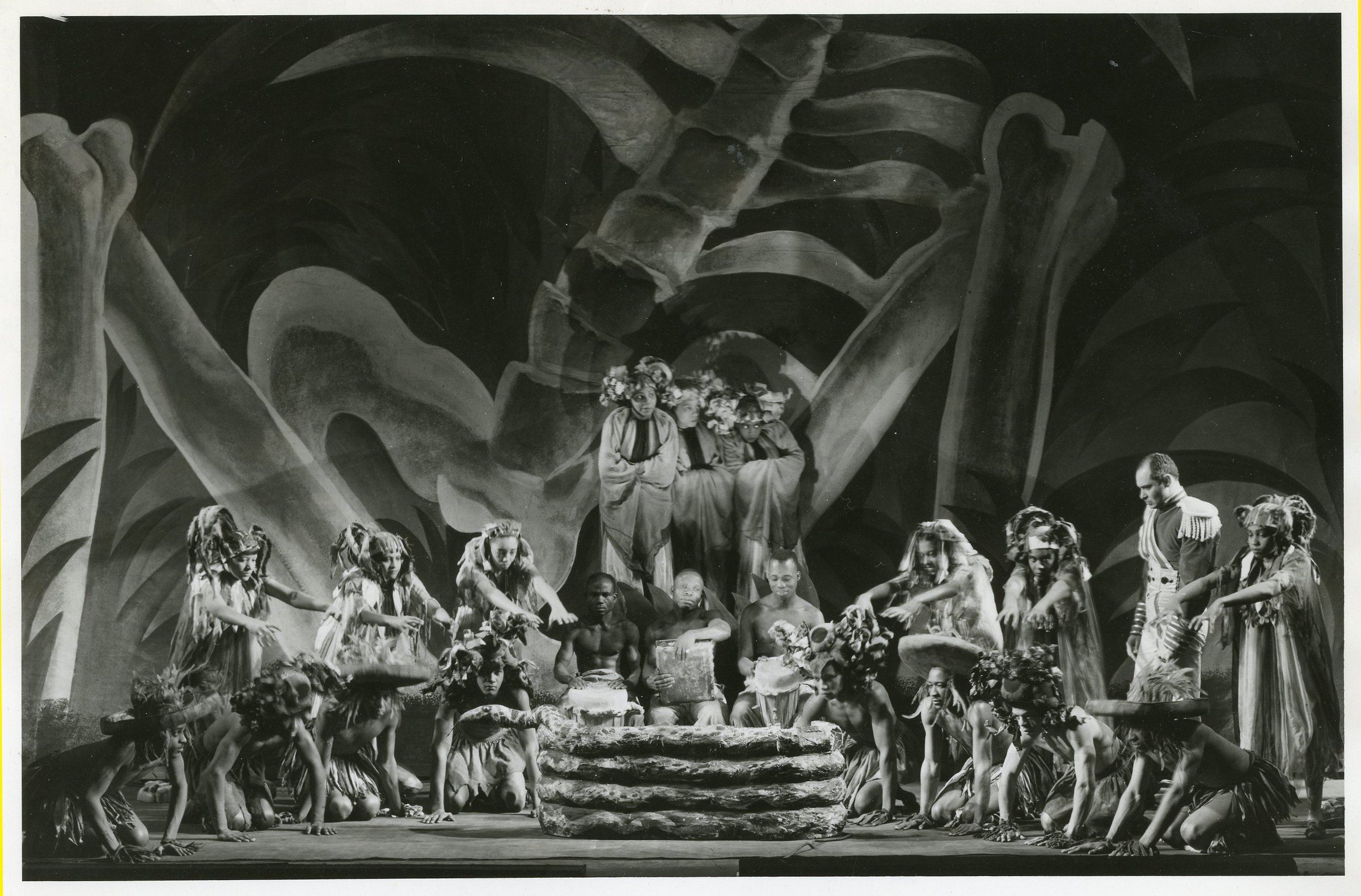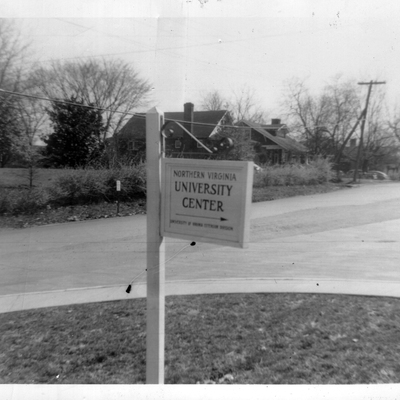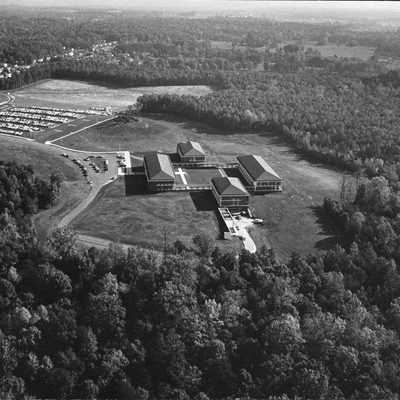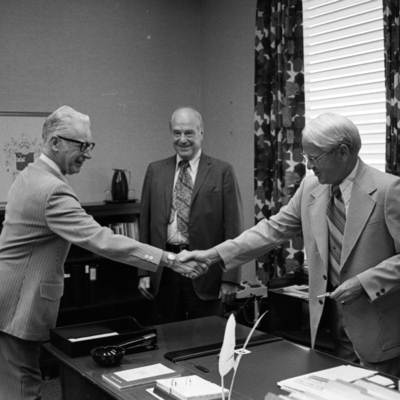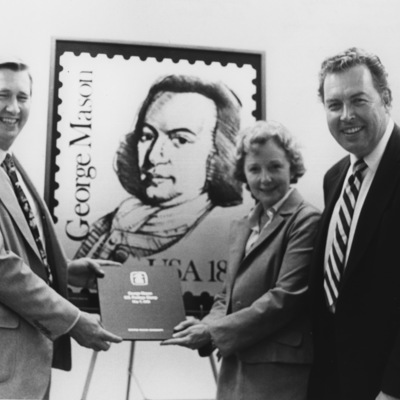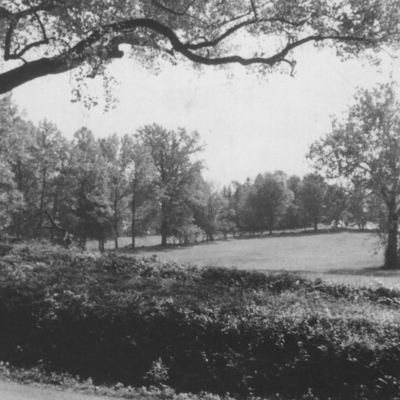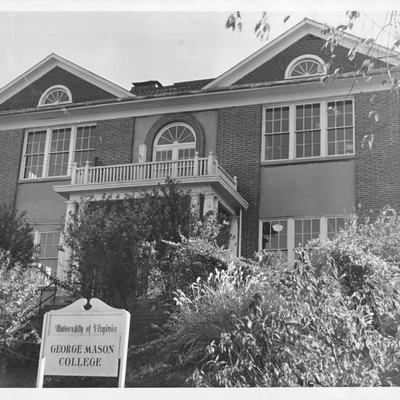The Discovery of the Federal Theatre Project Archives
In the late summer of 1974, faculty members Lorraine Brown and John O’Connor of the George Mason University English Department made an important discovery. Brown and O’Connor had been attempting to locate the archives of the Federal Theater Project, a Depression-era program through which the government funded the performing arts. These archives were thought to include hundreds of plays written between 1935 and 1939, including productions created specifically for Black and Jewish communities. After a solid year of research, the two GMU professors had finally tracked down the archives to a hangar near Baltimore Maryland. [1] The find was even more wonderful than anyone had anticipated; it included at least one copy of all 800 plays written for the program, dozens of scripts for radio shows during the era, newspaper clippings that contained stories that served as inspiration for many of the plays, and original hand-drawn posters for certain productions. The Library of Congress, which owned the papers but did not have the room to store the materials in Washington D.C., placed the collection on permanent loan to George Mason University.
The Federal Theatre Project (FTP) was begun in 1935 as part of the Works Progress Administration. Under the direction of Hallie Flanagan, the FTP employed several thousand actors, directors, playwrights, producers, and others in the entertainment industry during the Great Depression. In its four-year lifespan the FTP produced many plays, radio shows, and marionette shows. The program featured the early works of notable writers, actors, and producers such as Orson Welles, Arthur Miller, and Elia Kazan. In 1939, in light of the large amount of money needed to fund the program and after complaints of excessive amounts of left-wing works being produced, funding for the program was discontinued by the Federal Government. [2]
After the cancelation of the FTP thousands of scripts, photographs, and other records were dispersed between the National Archives, the Library of Congress, public libraries, and some educational institutions. Costumes, props, and other materials were sold or given away. The National Archives and the Library of Congress began to sort through and organize the material but in 1941 funding was cut from the project and with the onset of World War II, the project seemed to have been dropped indefinitely. [3] In 1964 the collection in possession of the Library of Congress was shipped to an airplane hangar in Middle River Maryland.
In the summer of 1973, Dr. Brown along with Professor O’Connor began a search for the FTP records. Brown later told the Washington Post that her interest in the collection came from “… a course I taught in American drama. Materials from the 1930s were very scant. When I heard about some unedited play scripts at the Library of Congress, I began … asking questions.” [4] Dr. Brown and Professor O’Connor came into contact with John Cole, a reference librarian at the Library of Congress, and began to investigate the materials in Middle River.
With the announcement of the Library of Congress that the materials were going to George Mason, the University immediately began plans to safely preserve the archives and make them accessible to scholars. University president Dr. Vergil Dykstra made the decision to house the papers in a section of the soon-to-be-opened Fenwick Library Tower. [5] Several purchases would need to be made, including special shelves to hold the boxes of manuscripts and large file cabinets to hold the original artwork. In addition, an archivist and a support staff would need to be hired to preserve the archives. The university applied for and received outside grants to supplement its own monetary contributions to the project. Graduate and undergraduate courses regarding drama during the 1930’s were created to introduce students to the archives.
When the FTP was canceled in 1939, the information relating to the works produced by the program was virtually lost to the general public. With the acquisition of the records by George Mason University they became widely available for public research. The interest generated by the newly available documents was immediate. By 1979 four doctoral dissertations had been completed using the collection and a further eleven were in progress. Articles on the collection began to appear in nationally distributed newspapers such as The Washington Post and The New York Times soon after the processing of the collection began. In April of 1980 the collection was awarded a National Golden Circle award from the International Performing Arts Festival for its “scope and influence as well as the extraordinary wealth of information it provides for all the world.” [6]
One of the FTP Collection’s greatest contributions was to preserve the history of the Negro Theatre Project (NTP) which featured all African American produced shows. Without the work of the research center to make the material available, books such as Black Drama of the Federal Theatre Era by E. Quita Craig could not have been written. Craig later commented that upon hearing the material was available at Mason “I thought, well, I’ve got to go see it. And then I ran into these black plays. They were just beautiful.” [7] The material of the NTP also inspired new classes at George Mason. A university news release in April of 1980 details a new drama course to be offered focusing on the “upsurgence of black drama during the 1930s.” [8] The course included research work with the FTP collection. Dr. Brown and Professor O’Conner published their own book on the collection titled Free, Adult, Uncensored: The Living History of the Federal Theatre Project in 1978 to national acclaim.
Gaining the Federal Theatre Project collection not only ensured that the FTP would continue to be accessible to those who were interested, but it also helped to establish George Mason University as a university nationally renowned for its research and scholarship. The many conferences, workshops, exhibitions and symposiums organized around the collection put George Mason in the national spotlight.
As part of the agreement between the Library of Congress and George Mason, the collection was always the property of the Library of Congress. In 1993, the Library of Congress began to recall several of its loaned materials, including the archives of the Federal Theater Project. They had concerns over how well Mason could preserve the papers in the future and believed that the archive would be more accessible at the Library’s location in Washington rather than in Fairfax. Dr. Lorraine Brown, who was still very heavily involved with the archive, tried to fight the Library of Congress’ decision by enlisting the support of researchers and archivists, but the collection was eventually returned to the Library in August of 1994
Copies of many of the records and oral histories of FTP personnel remain in the George Mason University Libraries, ensuring that future researchers will continue to have access to the materials at Mason.
Browse items related to the Federal Theatre Project.
